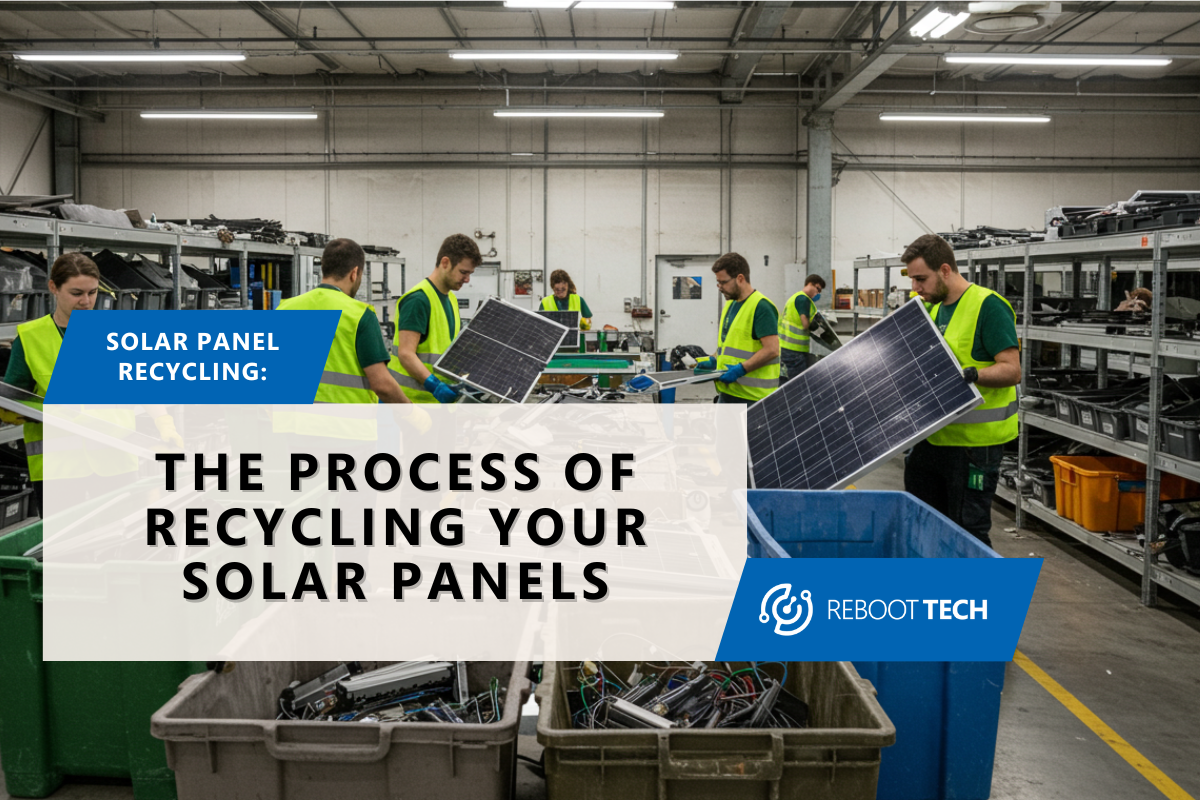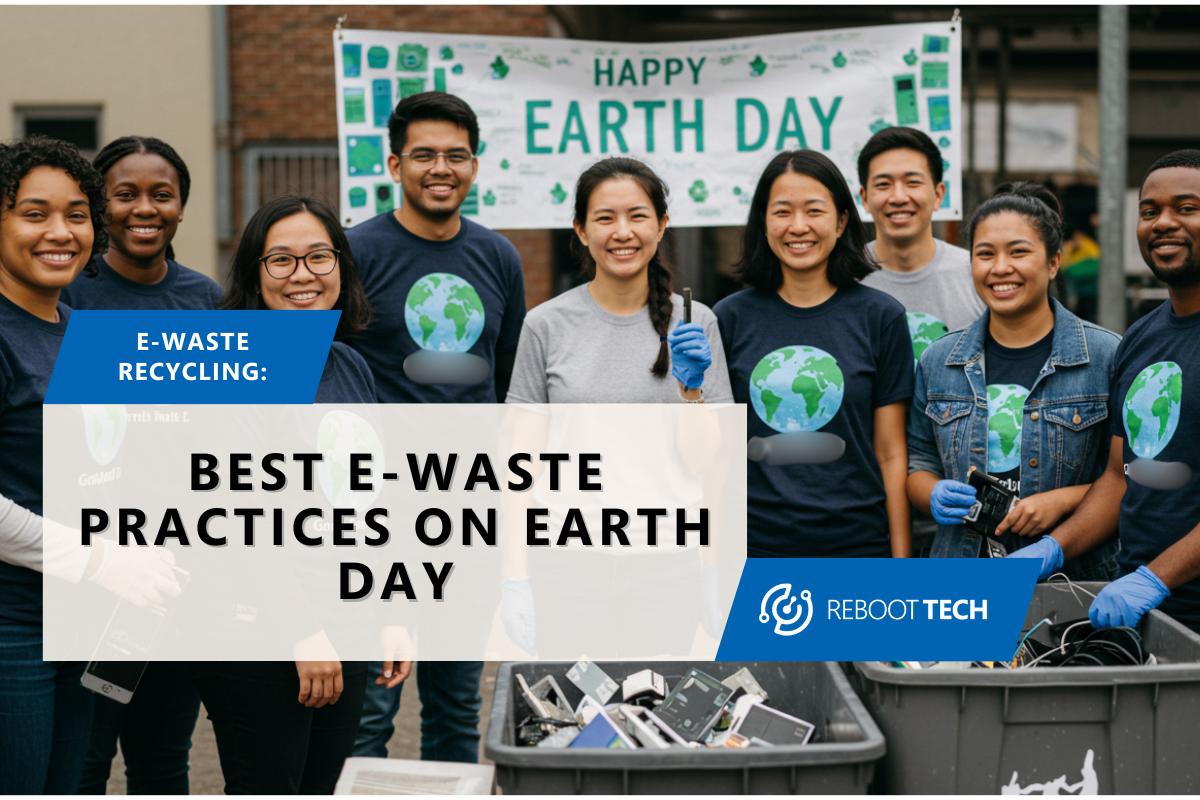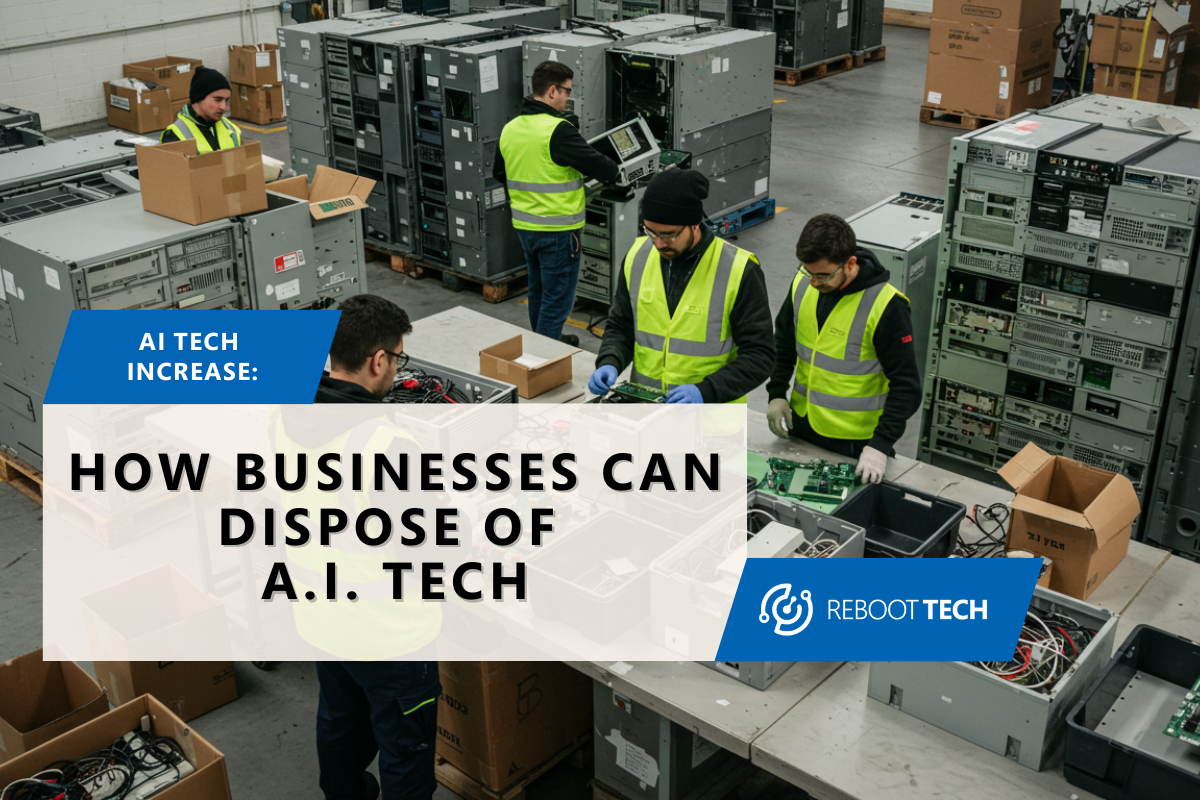
7 Common Household Electronics Ready For A Second Life
Have you ever opened a drawer or peeked into a closet and found it full of old electronics? Maybe it’s an outdated smartphone, a forgotten tablet, or a drawer full of old chargers and cables. We’ve all been there—electronics have a way of piling up over time. It’s easy to hold onto them, thinking we might need them someday, or simply because we don’t know how to dispose of them properly.
However, what we often overlook is that these abandoned gadgets are more than just clutter; they are e-waste, and if not handled correctly, they pose significant dangers to our environment and health.
Did you know that your old electronics could be a treasure trove of valuable materials rather than just clutter in your drawer? Electronic waste, or e-waste, is a form of solid waste that is a rapidly growing problem. Imagine mountains of discarded gadgets piling up worldwide. In fact, the global production of e-waste is expected to reach a staggering 131 million metric tonnes by 2024—that’s almost the weight of the Great Wall of China!
This mountain of e-waste isn’t just unsightly; it poses severe environmental risks as the fastest-growing waste stream on the planet. Toxic substances like lead, mercury, and flame retardants can leach into the soil and water, causing long-term damage to our ecosystem and human health.

Recycling e-waste is not just about decluttering; it’s about conserving valuable resources and protecting our planet. Many of our everyday electronics contain precious metals like gold, silver, and rare earth elements that can be recovered and reused.
By properly recycling your old devices, you can help reduce the demand for virgin materials and minimize the environmental impact of mining and manufacturing. In this blog, we’ll explore seven common but often overlooked electronics you can recycle, making it easier for you to contribute to a sustainable future. Let’s dive in and discover how you can turn your old tech into a resource, not refuse.
Old Routers and Modems
Why They’re Recyclable
Routers and modems often contain valuable materials like copper, gold, and plastic. Recycling these devices helps recover these materials and prevent toxic substances like lead and mercury from entering landfills.
How to Recycle
- Wipe Your Data: Ensure your personal data and private information is removed. Resetting the device to factory settings usually does the trick.
- Certified E-Waste Recyclers: Look for certified recyclers who guarantee data destruction and a proper recycling process. Reboot Tech, partnered with CalRecycle, is a great option.
- Drop-off Locations: Many electronics stores and municipal waste programs accept old routers and modems for recycling.
Electric Toothbrushes
Why They’re Recyclable
Electric toothbrushes have rechargeable batteries and small electronic components that should not be thrown away in the trash. The materials can be recycled and reused, reducing waste and environmental impact.

How to Recycle
- Remove the Battery: Some models allow you to remove the battery before recycling.
- Recycling Programs: Check with the manufacturer for take-back programs or locate a local e-waste recycler.
- Mail-in Services: Some recycling companies offer mail-in options for small electronics products.
Dehumidifiers
Why They’re Recyclable
Dehumidifiers contain refrigerants, metals, and plastics that can be harmful to the environment if not properly disposed of. Recycling helps reclaim valuable materials and prevents environmental contamination.
How to Recycle
- Local Waste Management: Contact your local waste management facility to find out how to recycle large appliances.
- Certified Services: Ensure the recycler is certified to handle refrigerants properly.
- Retailer Programs: Some retailers offer recycling services for old appliances.
Electric Kettles
Why They’re Recyclable
Electric kettles contain metals, plastics, and sometimes electronic components that can be recycled to reclaim valuable materials and reduce landfill waste.
How to Recycle
- Disassemble: If possible, disassemble the kettle to separate metal parts from electronic components.
- E-Waste Drop-offs: Many e-waste recycling centers accept small appliances.
- Retailer Recycling Programs: Check if your local appliance store offers a recycling program.
Digital Cameras
Why They’re Recyclable
Digital cameras contain a variety of materials, including metals, glass, and plastic. Proper recycling helps recover these materials and prevent toxic substances from polluting the environment.
How to Recycle
- Remove Memory Cards: Ensure all personal information is removed by taking out memory cards and any internal storage.
- Certified E-Waste Recyclers: Use certified recyclers like Reboot Tech, which guarantees safe and environmentally friendly disposal.
- Manufacturer Take-Back: Some camera manufacturers offer take-back and recycling programs.

Old Game Consoles
Why They’re Recyclable
Game consoles contain metals, plastics, and electronic components that can be harmful if not properly recycled. They often have valuable materials like gold and copper that can be reclaimed.
How to Recycle
- Data Wipe: Ensure all personal data is removed from the console.
- Trade-In Programs: Some electronics stores offer trade-in or recycling programs.
- Certified E-Waste Services: Use certified e-waste recycling services to ensure proper disposal.
Smoke Detectors
Why They’re Recyclable
Smoke detectors contain small amounts of radioactive material along with electronic components. Proper recycling prevents hazardous materials from entering the environment.
How to Recycle
- Manufacturer Instructions: Follow manufacturer instructions for safe disposal or recycling.
- Mail-in Recycling: Some manufacturers offer mail-in programs for old smoke detectors.
- Local Hazardous Waste Facilities: Contact your local hazardous waste facility for recycling options.
The Importance of Certified E-Waste Disposal
When recycling electronics, choosing a certified e-waste recycler is crucial. Certified companies ensure that data is securely destroyed, and materials are properly processed. Reboot Tech, in partnership with CalRecycle, offers reliable recycling services.
What is CalRecycle?
CalRecycle is California’s Department of Resources Recycling and Recovery. It oversees the state’s recycling programs, ensuring the safe and effective disposal of waste materials, including electronics. Partnering with certified recyclers like Reboot Tech ensures compliance with environmental regulations and guarantees that your e-waste is handled responsibly.
How to Recycle Electronics with Reboot Tech

Steps to Recycle:
- Gather Your Electronics: Collect the items you want to recycle.
- Erase Personal Data: Ensure all personal data is removed from your devices.
- Contact Reboot Tech: Reach out to Reboot Tech for details on drop-off locations or mail-in options.
- Drop Off or Mail In: Deliver your electronics to the designated drop-off location or use the provided mail-in service.
- Certification: Receive confirmation that your electronics have been recycled in compliance with environmental standards.
Additional Tips for Recycling Electronics
- Donate If Usable: Consider donating functioning electronics to schools, non-profits, or family members.
- Research Local Programs: Many cities have local e-waste recycling events or permanent drop-off locations.
- Manufacturer Take-Back: Check if the manufacturer of your electronic device has a take-back program.
- Stay Informed: Keep up-to-date with local regulations and guidelines for e-waste disposal.
Making a Difference One Device At A Time
Now that you know which electronics around your home can be recycled, it’s time to take action. Sorting through your old devices might feel like a chore, but remember, each item you recycle is a step towards a healthier planet. It’s not just about decluttering your space; it’s about making conscious choices that benefit the environment.
Think of the impact you can have by simply recycling an old router or a worn-out electric toothbrush. Every effort counts, and collectively, we can make a substantial difference. Even just picking one day out from the week to recycle a couple of electronics that you notice are just lying around collecting dust would be huge.
Recycling electronics not only helps protect the environment but also conserves valuable resources and reduces the demand for new raw materials. By properly recycling common yet sometimes overlooked items like routers, electric toothbrushes, dehumidifiers, electric kettles, digital cameras, game consoles, and smoke detectors, you can make a significant impact.

Choose certified recyclers like Reboot Tech who are R2v3 and ISO certified and are certified by the Environmental Protection Agency and the Department of Toxic Substances Control. Always choose certified e-waste recyclers like Reboot Tech, partnered with CalRecycle, to ensure safe and responsible disposal. Let’s contribute to a sustainable future by properly managing our electronic waste.





